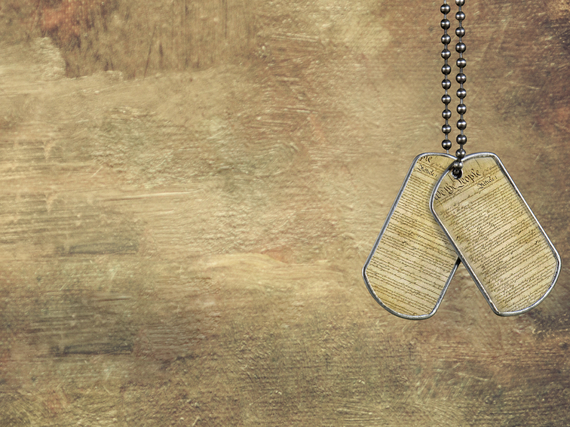Dear Journalist [name will remain anonymous],
Thank you for your detailed email regarding the upcoming story you are writing on PTSD (post traumatic stress disorder) in the military. Although I enjoy your articles, and read your paper daily, I regret to inform you that I am not comfortable giving you a quote for your piece. I believe your intentions are good by covering military mental health issues, and I appreciate the exposure you are giving this important topic, I'm just not sure you understand the repercussions that these types of articles have on our transitioning vets.
According to recent studies, there are 2.5 million post-9/11 veterans in the U.S. 60 percent are under the age of 30. 52 percent of those that served in combat probably had an emotional or traumatic experience. 60 percent served with someone who was badly injured, and forty seven percent served with someone who died. There have been 253,330 cases of TBI (traumatic brain injury) diagnosed between 2000 and 2012. Although it is difficult to get an accurate read on how many cases of PTSD exist, most experts agree it is around 13-20 percent for those that fought in Iraq and Afghanistan.
Additionally, the rates of suicide, unemployment, and homeless for veterans continue to rise. I believe this has a lot to do with the civilian-military divide, compounded by the media sensationalizing PTSD. I addressed this concern over a year ago in a Huffington Post blog "Are Veterans Getting a Bum Rap?"
Here are some additional facts I'd like you to consider. Civilian suicide rates are climbing as well; in fact suicide is the third leading cause of death in the U.S. for 15-24 year olds. Suicide is not just a problem here at home, every 40 seconds somewhere in the world, someone takes their own life. PTSD, best described as what can happen after experiencing a trauma, affects 5.2 million Americans every year. A study following Hurricane Katrina found that PTSD prevalence was nineteen percent for police officers, and twenty two percent for firefighters involved in response efforts. PTSD, suicide and homelessness, are civilian and first responder problems as much as they are veteran issues.
Did you know that the majority of veterans that exit the military are transitioning quite well into the civilian workplace? A recent Corporate Executive Board survey found that veteran employees perform at a level that is four percent higher than non-veterans and the turnover rates of veterans are approximately three percent lower than non-veterans. For a 1,000-employee company that averages $150,000 in revenue per employee, this translates to a $6 million yield due to veteran employee productivity and leads to savings of $1.3 million annually due to lower veteran employee turnover.
I find the resiliency of our veterans much more of an interesting and untold news story...
For example, the young man that I had the pleasure of meeting the other day. This Army veteran lost his right arm while serving in Iraq during a heavy combat battle. With a smile on his face, he proudly showed me a photo on his desk of himself at Landstuhl Medical Center in Germany when he went back to visit five years after the accident, to thank everyone for the exemplary treatment they gave him. He wanted the doctors and staff to know that he's married now with two kids, and to let them know that he has made value out of his life. There was no sympathy or feeling sorry for himself, he was grateful to be alive.
Or the lunch I had last week with a girlfriend who lost her husband (a Navy SEAL) in Afghanistan four years ago, and now after years of grief therapy, and coming to terms with the death, she is finally ready to start dating again.
Or the Marine I just had coffee with that shared how 23 years ago a Judge said to him, "It's either time in prison or join the military." He joined the Marine Corps and has since risen the ranks to SgtMaj. He proudly shared, "I owe the Corps everything, if it wasn't for them straitening out my life at a young age, today I'd either be a criminal on the streets, or have wasted my life away in jail."
Or the LtCol I talked with on the phone this morning (who has PTSD and is currently leading a large unit of Marines) who said, "I've seen some pretty heinous things in my many combat tours. I'm glad my subconscious struggles with integrating what I've been exposed to. If I didn't have any reactions to it, then I'd be more concerned." By the way, his PTSD treatment is going well and he's been promoted since being in treatment.
So, if you'd like to write an article on veteran resiliency and how our country has the most incredible and powerful military in the world, comprised entirely of individuals who volunteer to serve and protect our country, I'd be happy to assist in any way I can. Coming from someone that never served, the will and moral courage that free men and women take to protect us, is something I can only admire with my upmost respect.
I was recently called a "hopeless patriot." It struck a nerve and I probably responded a little too harshly, but I truly think that patriotism is something we can all try a little harder at. If you live in America and prosper by existing on this soil, than I believe we all have an obligation to be proud of our country and honor those that served.
I hope you'll consider another slant to the story, if you do please let me know how I can help.
Best,
Marjorie Morrison
